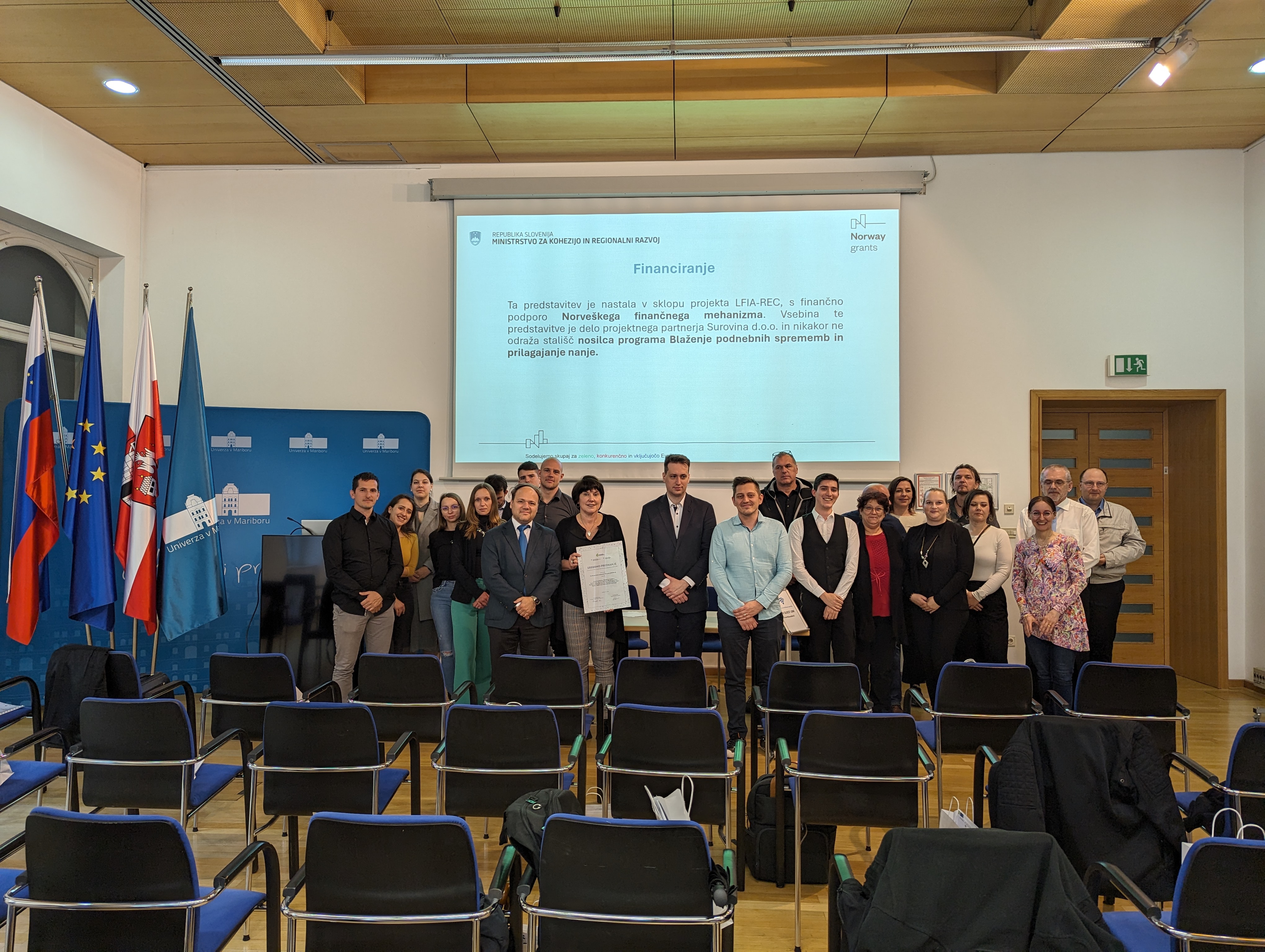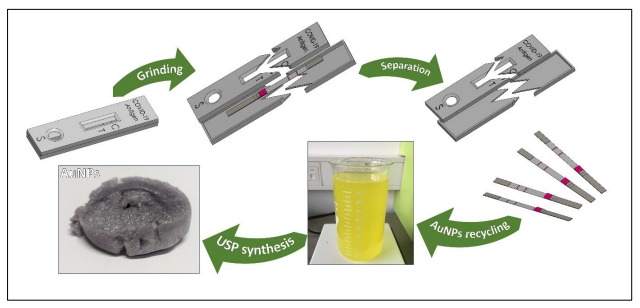
23 April 2024 – The final conference of the project Recycling of Rapid Antigen LFIA Tests (COVID-19) – LFIA-REC, co-financed by the Norwegian Financial Mechanism in Slovenia, took place in April.
The welcome speech was given by the Dean of the Faculty of Mechanical Engineering at University of Maribor, Prof. Dr. Matej Vesenjak, who welcomed the participants at the conference.
The first lecture focused on the design of a process for recycling gold and thermoplastic nanoparticles from rapid test waste by the Project Promoter, the Faculty of Mechanical Engineering, University of Maribor. They carried out and coordinated the development activities of the LFIA-REC project, with the aim of designing a process for the separation of test strips from rapid test cassettes and the subsequent extraction and refining of gold nanoparticles.
In the second lecture, several project partners presented the experimental work they have carried out to investigate the possibility of using the milled material recovered from recycled rapid antigen tests for use in products in the electrical industry.

The third lecture shed light on the recycling of SARS-CoV-2 rapid antigen tests. The Faculty of Polymer Technology has been involved in the separation of rapid tests, plastic recycling, and characterisation as part of the LFIA-REC project. At the beginning of the project, the thermal properties and chemical composition of different rapid tests in circulation in Slovenia were characterised, which provided key information for the planning of other activities in the project.
The fourth lecture – by the project partner Institute of Metals and Technology – explained the characterisation of gold nanoparticles recycled from LFIA rapid antigen tests.
The fifth lecture focused on the refining of gold nanoparticles for re-use in USP synthesis. For the refining of gold nanoparticles, the components of the LFIA tests need to be chemically treated with acids to remove contaminants, residual organic and inorganic matter, and by-products. Based on the results of the gold nanoparticle characterisation and experimental refining during the project, a final protocol for the separation of the gold nanoparticles and the purification of the recovered gold for downstream production processes has been established.

The main part of the conference was dedicated to the presentation of the results, achievements, and indicators at the end of the LFIA-REC project. A protocol for the collection and handling of rapid antigen tests was introduced. The designed and developed protocol for collection of used rapid antigen tests has contributed significantly to the reduction of waste in the healthcare sector of the Republic of Slovenia.
The separation of LFIA rapid antigen tests was presented by the representative of the project partner Surovina, Waste processing company, Ltd. They set up and carried out the separation of the supplied rapid antigen LFIA tests to two separate fractions: plastic cases and gold nanoparticle test sticks.
The Project Promoter is the University of Maribor and Project Partners are Plastika Skaza Ltd, the Faculty of Polymer Technology, the Institute of Metals and Technology, Zlatarna Celje Ltd, the University Medical Centre Maribor and Surovina, Waste processing company, Ltd.
SOURCE: Faculty of Mechanical Engineering, University of Maribor